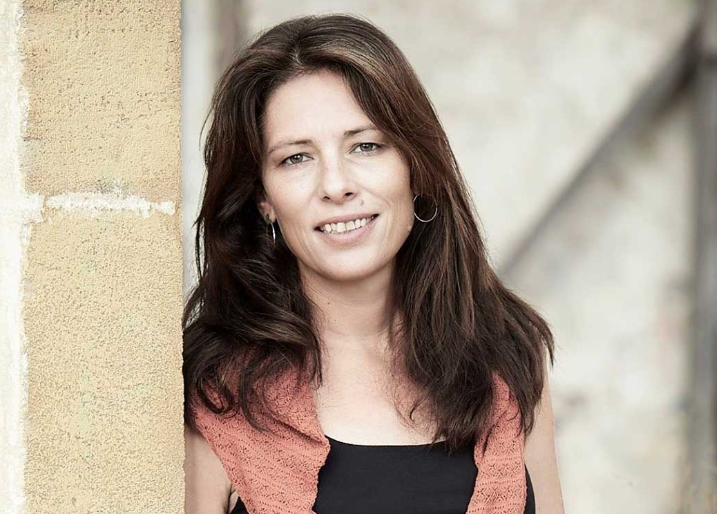With conflicts in the region and increasing numbers of foreign companies based in Cyprus, the island’s English language schools find themselves bursting at the seams
With increasing numbers of foreign companies moving into the island and some towns better served with private schools than others, the sector is seeing a surge to meet the demands from more families for an education in English. Expansions and new openings are taking place around the island.
“Our schools are expanding at a relatively fast pace,” says President of the Cyprus Association of Private Schools and Director General of the Grammar School in Nicosia, Akis Gregoriou.
But he does not put this down to foreign companies alone, saying private schools in Cyprus are expanding due to the unstable political developments around the world. “The wars in Israel and Ukraine have influenced this expansion since many Israelis have arrived with their families as well as many Ukrainians,” says Gregoriou. “Schools have been expanding in certain areas, Limassol primarily, due to the Russian influx before the Ukrainian invasion. In Limassol in particular, there are more than 20,000 people working for tech companies who come with their families, and they need schools for their children,” he adds. This shines a light on why a number of new schools have been built in Limassol, and another two are under construction as we speak.
Both Foley’s School and the Pascal Private English School reflect the national trend with an increase in the number of students enrolling and wanting to enrol. “There has been a great increase in demand for private international education especially from Russia, Ukraine, Israel, China, Saudi Arabia and Cyprus,” reveals Careers Councilor at Pascal, Niki Zachariadou. The largest private educational provider on the island, Pascal is expanding school premises in all three towns it operates schools in, Nicosia, Larnaca and Limassol. Interest though, Zachariadou says, is both local and international.
SCHOOLS GUIDE 2024
“The actual demographics of the country have changed,” adds Deputy Head, Careers Advisor and Head of Science at Foley’s School in Limassol, Michael Orford. “We have seen an increase in demand at Foley’s too, we have an increase in new students and we are certainly expanding”. One of Limassol’s oldest schools, Foley’s moved to new premises several years ago and now has the capacity to host the increased number of students.
As well as, “Larnaca and Limassol are expanding at a fast rate,” says Gregoriou, “in Nicosia, the increase in the number of students has not been as high but investors from abroad are interested in investing in education, so the expansion is under way there, too”.
Careers Advisor at the International School of Paphos, Stella Luizinho, also reports expansion at the school, which has been noticeable over the last three years. “The expansion was initially linked to our country’s accession to the EU, which has led to increased job opportunities and work which is beneficial for families,” says Luizinho. “Consequently, these families seek schools that offer high educational standards with English as the medium of instruction. Despite its drawbacks, the Covid pandemic has also facilitated remote work, enabling families to relocate to safe countries like Cyprus,” she adds, while also agreeing that another recent major contribution can be attributed to conflicts in the wider region. “As a result, there has been a notable increase in the number of students coming from Russia, Ukraine and the Middle East.”
Gregoriou is also quick to point out that there is a limit to the number of students a school can accept since private schools are obliged to follow the education ministry’s regulations regarding maximum class size. “Our schools are expanding at a relatively fast pace but always within the ministry’s regulations that makes things slow down since the bureaucracy and red tape are not always as efficient as we would like them to be,” says Gregoriou. “However, there is also uncertainty as to whether the demand will remain high since Russians are moving to the occupied area of Cyprus due to its lax regulations regarding businesses and capital and the US sanctions,” he adds.
With most private schools across the island expanding their facilities to cope with the increase in demand, other challenges must also be faced. “To cope with the rising numbers, we are expanding our facilities, however, our main challenge lies in recruiting suitable staff to meet the demands of this growth,” says Luizinho. “The other major challenge lies in the difficulty that prospective employees face in obtaining the necessary work permits,” she adds.
As a result of increased numbers of foreign students, the Pascal English Private School has seen its Nicosia boarding school witness a significant expansion since its opening in 2013.
Another dimension to be looked into is how local families are making ends meet in order to afford sending their child(ren) to private school, with around 20 per cent of the island’s students currently in private education. “As far as Cypriot families are concerned, they make sacrifices such as cutting down on their vacation expenses, postponing buying a house or a new car and many other cutbacks that can enable them to put their children in the school of their choice, and the same applies for their further education,” says Gregoriou.
“In Cyprus, education has been a very necessary and serious investment, especially since 1974 when Greek Cypriots discovered that they could lose their houses and all their property but not their education/knowledge, which they can use to find work and survive; so, to them, any sacrifice, be it financial or personal, must be made for their children’s education, all the way from preschool to university.”







Click here to change your cookie preferences